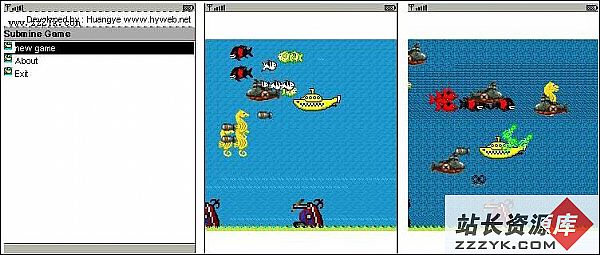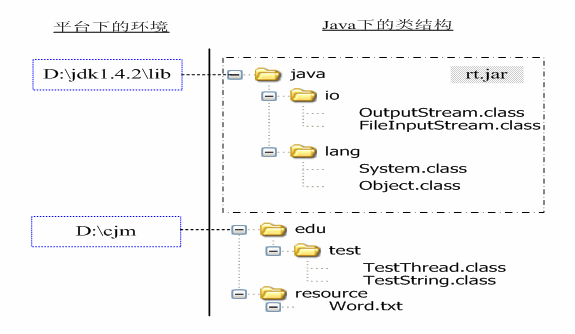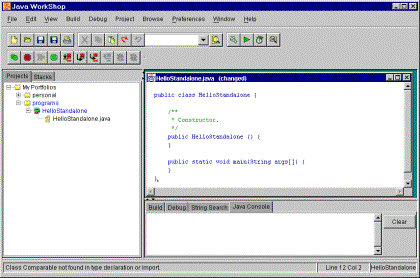当前位置:编程学习 > JSP >>
答案:/**
* $RCSfile: FullStringTokenizer.java,v $
* $Revision: 1.2 $
* $Date: 2001/07/31 05:38:29 $
*
* Copyright (C) 1999-2001 CoolServlets, Inc. All rights reserved.
*
* This software is the proprietary information of CoolServlets, Inc.
* Use is subject to license terms.
*/
package com.jivesoftware.util;
public class FullStringTokenizer {
private String string;
private String delimiter;
private int index = 0;
private int length = 0;
private int delimiterLength;
public FullStringTokenizer(String string, String delimiter) {
this.string = string;
this.delimiter = delimiter;
delimiterLength = delimiter.length();
length = string.length();
}
/**
* Determine if there are more tokens available
*/
public boolean hasMoreTokens() {
return (index < length);
}
/**
* Get the next token
*/
public String nextToken() {
String s = this.string;
int nextToken = s.indexOf(delimiter, index);
//Done finding tokens
if (nextToken < 0) {
// fixed to return whatever is left in the string (for the case
// of "[tok]data[tok]data" <- no ending token)
String tok = s.substring(index,length);
index = length;
return tok;
}
else if (nextToken == index) {
//We found an empty token
index += delimiterLength;
return "";
}
else {
String result = s.substring(index, nextToken);
index = nextToken + delimiterLength;
return result;
}
}
/**
* Returns true of the string being tokenized ends on a delimiter.<p>
*
* For instance, if the string is "a/b/c/d/" and the delimiter is "/"
* then this method will return true. A string of "a/b/c/d" returns false.
*/
public boolean endsOnDelimiter() {
return ((string.lastIndexOf(delimiter)+delimiter.length())==string.length());
}
/**
* Test program.
*/
public static void main(String [] args) {
String testString = "||this is|| a test||||of the system||||";
FullStringTokenizer tokens = new FullStringTokenizer(testString, "||");
while(tokens.hasMoreTokens()) {
System.out.println("> " + tokens.nextToken());
}
}
}
- 更多JSP疑问解答:
- jsp新手求指导,不要笑!
- 如何让一个form提取的值传递给多个jsp?
- DW中,新建的html页面能否有jsp或php代码?
- jsp 如何限制表单,实现只能填写特定的数据。
- jsp 和javabean结合的程序有问题
- 从数据库里取出的数据如何传递到另外的jsp页面中
- 你好,ext嵌入那个jsp页面,是不是还需要加上一些插件啊,不太懂,麻烦你了。
- JSP不能处理所有问题吗?还要来一大堆的TLD,TAG,XML。为JSP 非要 Servlet 不可吗?
- 光标离开时全角转半角在jsp中怎么实现
- jsp 页面 打开 pdf 文件 控制大小 和 工具栏 能发份源码么 谢啦
- jsp页面点保存按钮,运行缓慢,弹出对话框提示
- jsp刷新页面如何不闪屏
- jsp 与html 的交互问题?
- jsp小数显示问题 例如 我在oracle 数据库中查询出来的是 0.01 但是在jsp页面上就显示成 .01 没有前面的0
- jsp中日历控件





